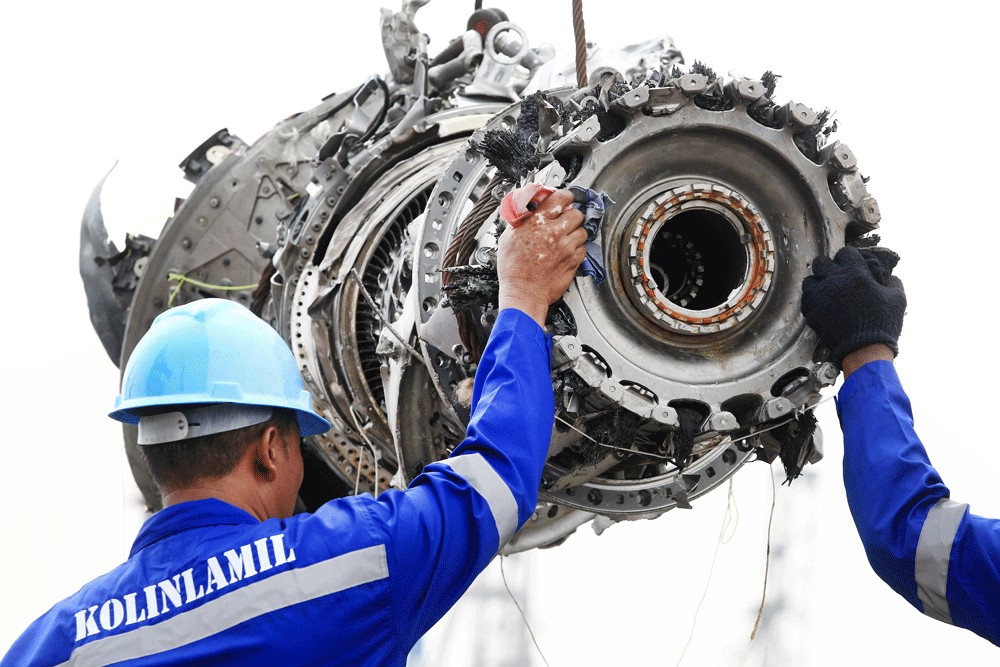Popular Reads
Top Results
Can't find what you're looking for?
View all search resultsPopular Reads
Top Results
Can't find what you're looking for?
View all search resultsQuestioning oversight
Safety is too valuable to compromise, or else our airline industry would lose international credibility and suffer.
Change text size
Gift Premium Articles
to Anyone
T
he much-awaited answer to the question of what caused Lion Air flight JT610 to fall into the Java Sea last month, killing 189 people on board, looks to have arrived, but it appears to have caused confusion. The National Transportation Safety Committee (KNKT) said on Wednesday that its investigation concluded that the Boeing 737 MAX was not airworthy because of problems in its key instruments. On Thursday, however, it retracted its statement, saying the aircraft was airworthy because the problems had been fixed.
On Wednesday, Lion Air challenged the investigation results filing and families of the plane crash victims considered lawsuits against the low-cost airline and the United States aircraft maker Boeing following the KNKT’s initial report.
Thursday’s about-face highlights disagreement over safety standards among stakeholders of the country’s aviation industry. Nevertheless, surely the KNKT’s preliminary findings related to the Lion Air tragedy justify the question about safety, particularly concerning the supervision mechanisms that apparently did not work properly in the country’s latest plane accident.
An accident, especially one that involves aircraft, never happens because of one single factor, but because of a number of reasons. Therefore, instead of laying the blame on Lion Air alone, the KNKT discoveries should launch a comprehensive review of the national air transportation safety standards just to make sure no more preventable accidents will occur. Safety is too valuable to compromise, or else our airline industry would lose international credibility and suffer.
In its investigation, the KNKT found that the maintenance log of the Lion Air flight had identified six problems on the plane since Oct. 26, including errors with its airspeed and altitude information displays. The log showed the plane’s angle-of-attack sensor, which defines the angle between the wing chord line and the flight path, had been replaced the day before the accident, but the problem persisted.
On the night before the crash, the plane’s stick shaker, which warns the pilot of an imminent stall, was active during a flight from Bali to Jakarta, but the pilots managed to land the craft safely. The same problem occurred right before the Oct. 29 flight that ended in misery 13 minutes after takeoff from Soekarno-Hatta International Airport.
The fact that the plane was cleared to fly despite the recurring problems in the safety equipment signals poor oversight, which is the government’s responsibility. The KNKT was correct in recommending that Lion Air improve its safety culture, including by encouraging pilots to cancel a flight for safety reasons, but it will not help much if supervision does not work properly.
Government controls matter as they can help minimize accidents through enforcement of safety regulations. Strict controls should have prevented carriers, whether low-cost or full service, from experiencing many and repeated accidents. For the record, Lion Air registered at least 16 incidents between 2000 and 2018, far more than its regional competitors. More than just blaming one particular carrier, this fatal accident should trigger a holistic improvement of the national airline industry, the importance of which is expected to significantly increase in the years to come.










